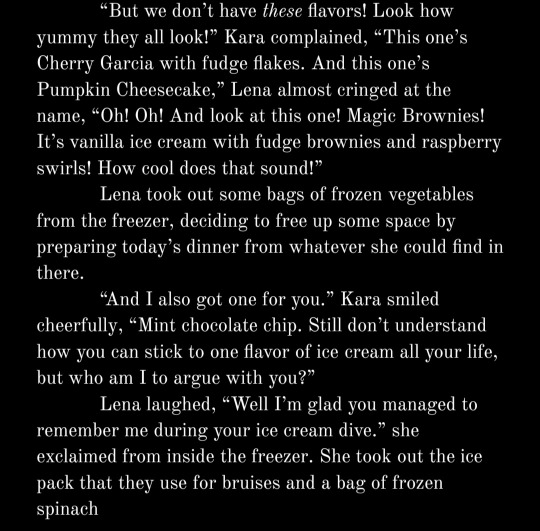#there's a lot of czech and polish people here and you sit around with random people in the ski lifts so perfect opportunities for
Text
I think I found out why I struggle so much with Czech when I understand Polish just fine (well not just fine but miles better than Czech with a lot less effort). Basically German marks focus by using stress. Something that Czech very notably does not do and in general I feel like Czech doesn't have a whole lot of stress going on above the level of morphology. And I mean yeah Polish also uses word order to mark focus just like any respectable Slavic language does but also there's a lot more going on there with prosodic stress. And I just need a stress marker to let me know what to part of the sentence I should pay attention to. And like I mean I could probably get by without it if I spoke the language better but guess what?
#and i mean yeah sure french also doesn't do this but a)I speak french a lot better than i do czech#and b) french has a very fixed word order like if I know from context the object is gonna be important I know exactly where to find it#and not first go searching for it bc it got put god knows where#and you might say 'well johanna the object probably has either accusative or dative case so look for that'#to which I can only say 'have you SEEN the czech case system???'#I do love skiing holidays I always make so many fun and interesting conversations#there's a lot of czech and polish people here and you sit around with random people in the ski lifts so perfect opportunities for#listening practice and noticing things#also many italians and Dutch people and germans#and the occasional slovak person and some slovenians#it's so fun to see like all the multilingualism and communication strategies#and out of all those people you know who I understand the worst?#the people from where we're skiing when they talk to each other bc while it's technically German#the dialect from this part of South Tyrol is so strong and weird I'm completely lost
3 notes
·
View notes
Note
How do you sit down and write? Like do you write at tea/coffee shop to increase that anesthetics writer creativity? Or hole up under your blanket? I’ve been trying to write something for 2 months now without much progress. Any words of wisdom?
Boy, do I got a few tips for you!!
These tips are mostly if you’re writing a story (but some work both ways), so if you’re writing a paper or a dissertation or something with no progress, I’ll gladly do another post for that!
Step right up and welcome to Mickey’s....
Sit Yo Ass Down And Write Crash Course
1. Tip number uno:
Never sit your ass down and write.
Hear me out, hear me out. If you’re anything like me, then you’re probably a serial procrastinator who’s always in desperate need to just not do what needs to be done. It’s quite simple. All you gotta do is trick that damn beautiful but procrastinating brain of yours.
How? Well, I’m glad you asked!
I actually do my best writing standing in lines! Yup! Standing in lines has written some of the most intense scenes in PI. Hospital and airport waiting areas? Yup. Lotsa writing done there! Basically, if you find yourself waiting for something, pull up your phone and start writing. Half of PI was written on the subway, on buses, or in cars. I don’t know what it is, but my brain becomes hyperactive at that point. Like I have to finish writing this scene before reaching the front of the line or else I’ll make a fool of myself in front of the pretty barista lady.
For us procrastinators, we like to find any and every excuse not to work. But when you’re not actually working and your doing something else instead, our procrastinating brain doesn’t really identify the action as writing.
Believe it or not I never actually ‘sit down and write’. I only do so when I’m editing. During the editing process, I force myself to sit down on an actual chair, in front of an actual laptop/computer screen, use an actual keyboard, and edit! It’s brutal! Makes my procrastinating brain go antsy!
2. Tip number two:
If you get an idea, stop, drop, and type!
Don’t think about it. Don’t overthink the idea. Just jot it down on your phone. I don’t care if you were talking to someone and it would be rude to do so. Because as soon as you let go of that idea and say, “I’ll write it down later” then poof! it’s gone!
Repeat after me: STOP. DROP. AND TYPE.
3. Tip number trzy (Polish):
never write perfectly from the start.
Write in bullet form if you have to. Or just type the idea you have in your head. The more you pressure yourself to writing something perfectly, the more you’ll forget your idea. And this works with both story writing and academic writing as well.
Writing is a lot like drawing. You start with pencil, draw the basics - dialogue, single action, main thing that happens - then using your pencil, draw some of the details - the he said she said parts, turn the actions into full sentences with adjectives and description - then lastly add in the color - the punctuation, the indentations, and the splitting of paragraphs - and finally you have a picture.
Let me give you an example. This is a simple scene that I’m gonna write on the spot from the random phrase “There’s no space for my ice cream”. (I initially screen recorded a video for you, but then when I came to upload it, I unfortunately realized that Tumblr doesn’t allow videos on asks....)

So here you see just random dialogue. No actions even.

Then I added dialogue above it. So what you write first doesn’t necessarily mean what’s gonna come first.

More dialogue and some action.

Here I started fixing it up. Added indentations. Set a scene with Lena being in the other room and all.


And then Tada!
So, As you can see, I start with basic dialogue, just what I think they might say (it changes a lot btw). Then I add some actions. Then I go back up and write more dialogue before the dialogue I started with. Then I go ahead and indent a few lines here and there. I write the saids (Kara called. Lena answered. She said. Kara exclaimed. Kara whined). And then add in some scenery as well.
And like I said, this works for story writing as well as academic. I used to do the same thing when I needed to write a paper. I would start simple. No big words. Just somewhat of an idea of what I want to write and build up from there.
4. Tip number quatre (French):
Watch to learn.
This means that when you’re watching something, whether it’s a movie or a tv show, learn how the characters react. Their quirks, their nervous habits, everything and anything that makes them them. I can’t count how many times I had to rewind a movie because I was too busy noticing how the main character’s eyes would linger on the coffee table in front of her before she would say something painful. Or how if a character is shoved to the ground, which body part hits the ground first. Go through scenes of movies and tv shows and learn how people behave.
Movies and Tv-shows could also help you with how a character can cope a certain way or react in a certain way. For example, I was watching this show on Netflix called “Dead To Me” and the main character, her husband was killed in a hit-and-run by a speeding car. And part of her grief was that she would jot down the licence plate number of every car that was speeding and every car that had a bump at its front. That’s a detail of a specific form of grief. You could have your own character be obsessed with finding a cure to heart attacks if their SO died that way.
5. Tip number cinque (Italian):
Use real people as reference.
Sit in a coffee shop and creepily watch a woman sitting in the corner table. You gotta act all stalkerish here for it to work! Now pretend that it’s your character that’s sitting there. Write down the little things that the woman might do that you’ll probably never even think of if you would have written the scene at home. Like how the woman’s head jerks up when a car passes by and she watches it through the glass window. How her foot taps on the floor to the rhythm of her music. How she frowns when she spills some coffee on her sketch book. Everything. The silly faces she does to the toddler sitting in the other table.
Use real people. If you’re writing a girl who’s somewhat tomboyish, maybe go to a skateboard park or something. Go to a fancy restaurant if you’re writing a rich old lady. A library if you’re writing a college student.
6. Tip number lix (Somali):
Don’t write in order.
I cannot stress this enough. Write bottom to top. Middle to top. Middle to bottom. Write middle to bottom to middle again to top. Just don’t do it in order. Most of the time I write a paragraph thinking this is how I’m going to start my scene and it ends up being somewhere in the middle of all the chaos! Writing in order doesn’t make sense not even in essay writing. You never write an introduction first because you need a thesis. In order to have a thesis you need to know what the hell your body paragraphs are talking about. So, you start with your body. Not necessarily the first body paragraph either.
Write whatever comes to mind and figure out the order later. Chances are, it’ll change a billion times over before you commit to one. Writing in order gives your brain stress and in turn you’ll probably get a mental block. You’re too pressured to write the opening scene of the chapter that you forget what the hell happens in the end. And you lose that excitement, that flare you have to write the scenes that you had figured out in your head. Which sucks. Because it’s nearly impossible to get that back!
Also don’t worry about how you’ll combine everything in the end. That’s for the editing process, you’re not there yet. And from my experience, things tend to come together in the end on their own so you shouldn't worry too much.
7. Tip number seitsemän (Finnish):
Details, dude! They are everything!
(This one has nothing to do with being unable to write.... I realized this only AFTER I wrote it.....)
sometimes the details have nothing to do with the main characters, but writing them helps the reader feel like there’s a world there being lived beyond the characters he or she is reading about.
It paints a picture. And in writing, it’s very hard painting a picture with a white paper and some black ink. And that’s when details come in hand.
What I like to do is I like to zoom in on the scene I’m writing. Picture the scene in your head. Let’s take for example both characters are sitting on a bench in the park. Now pretend you have a pair of binoculars and zoom in on the scene. You’ll probably see a small ladybug that is sitting on the bench between them that one of the characters noticed but didn’t say anything because they know the other person is afraid of bugs. So they carefully pick it up without letting the other person know and they place it on the other side beside them. Or maybe you’ll realize there’s some carvings on the edge of the bench. A heart with an arrow and two letters on each end. Your character will probably wonder who the letters belong to, what were their names, and whether or not she and the other person would ever carve their own letters on a bench somewhere.
Details make a simple scene of two people sitting beside one another, into a whole picture of everything around them.
8. Tip number osm (Czech):
Do research!
Top weird things I had to do a ton of research about for my stories:
How to build a gas bomb that you could release through the ventilation system of a buildingWhat kind of metal are the batarangs made of?How to bring someone back from the dead?How much space do you need to build a rocket and is a football field enough?How high should a person’s IQ be for them to be considered ‘genius’ level of smartQuantum Mechanics and matter reconfiguration devicesintracortical microstimulation (whatever that is) and how to use it to create the sense of touch in amputee limbs
The list goes on, trust me!
But research gives you an idea of where to begin. Sometimes, you don’t even know what it is you’re writing and you get ideas from your research. Research gives your readers a realistic sense to your world. Even if it’s not real. Even if all you’ve written is fake. They don’t know that! But what they do know is that your character is hella smart and can create a device using intracortical microstimulation to help create the sense of touch in amputee limbs!
Fun fact: Watch "True Memoirs of an International Assasin”. It’s on Netflix. And it’s every writer’s nightmare. It explains just how much we writers would go for that small detail. It shows you the depths we will take to ensure we know every detail of what it is we’re writing about! Highly recommended for every writer out there!
9. Tip number dokuz (Turkish):
If you’re stuck, act it out!
Yup, you heard me! Get yo ass off that chair and start practicing for your next Oscar because you’r gonna act out the scene you wanna write. Say your character just entered her house and called out to their spouse without a response. Go inside your own house and start jotting down the details of what you see. Your character will probably notice the lack of shoes. How the kitchen light isn’t turned on. Or the hum of the dishwasher not present. No keys in the bowl. All small things that they slowly realize before actually realizing that no one was home.
Acting also gives you ideas on how someone would react. Walk into your own house and imagine finding out you’ve been robbed. All your stuff is everywhere. Now, realistically - and I mean really really realistically - you wouldn’t freak out. At least not physically on the outside. You wouldn’t start jumping and shouting and go looking in your room if your cash is gone.
Because your brain needs time to process. You would have questions. Lots of them. Is the thief still here? Should I call the police? No, what if this is a prank. Is this a prank? Who would prank me like this? Your eyes would go around the room, noting down all the details there. The broken glass, the opened drawers, the thrown pillows. Use your own surroundings to imagine what a robbed place would look like.
10. Tip number umi (Hawaiian):
Always remember, each character is different.
(Realized this one also has nothing to do with being stuck and not being able to write and more to do with character writing... I think I went off topic....)
I always find stories where all the characters are practically written the same way. The dialogue is really generic. Because the writer isn’t really imagining as each character being a separate entity. They’re all characters of a story to them. The way one character talks is often if not always never the same way another character talks. AND a certain character will talk differently depending on who they’re talking with.
Give each of your characters certain attributes or quirks that they add to their dialogue. Like how the more sophisticated one chooses to say ‘darling’ instead of ‘babe’ or how one of them speaks in short and concise sentences having served time in the army and taught that each word counts. I know this tip isn’t that important, but I’ve seen a lot of writers do this mistake where all the dialogue is the same. And that’s because they’re trying so hard to move the story along that they forget that they need time for the characters to react and process differently.
Similarly, make sure that you know that each character reacts differently. I’ve fallen into this mistake several times actually to be honest. This one time I wrote a whole scene where I had Lena be super happy about something (can’t remember what it was) with someone she wasn’t too close with and then I remembered that she’s more reserved than Kara. She less trusting so she rarely shows her genuine side to others unless she knows them to be worthy or good. She’s not too open so she wouldn’t show her happiness by jumping around and screaming with joy. Whereas Kara! Oh, Kara! She would hug the mailman when she would be happy! And she’s probably best friends with her pizza delivery guy! Had to do multiple rewrites whenever I would do that mistake.
11. Tip number vienuolika (Lithuanian):
Drink Green Tea.
Repeat after me: Drink. Green. Tea.
No explanation necessary. Tea is life.
#Sorry this got so long#I tried putting it under keep reading but it didn't work#Oh well#Writingng advice#Ask#Mickey answers#Writing tips#Writing#Fanfiction
60 notes
·
View notes